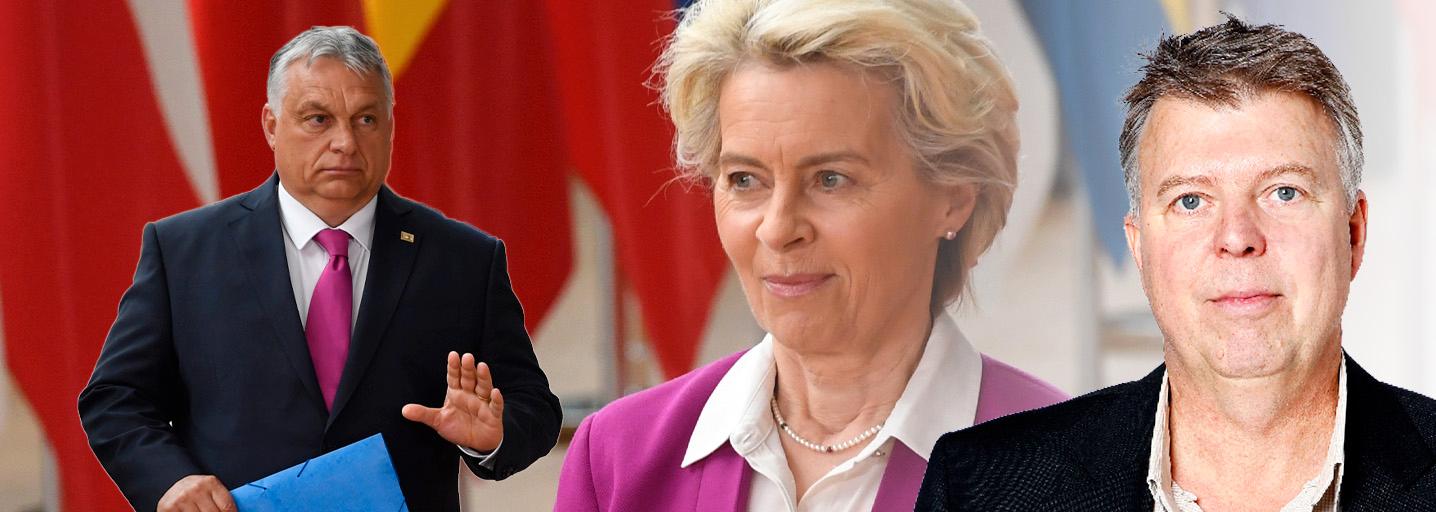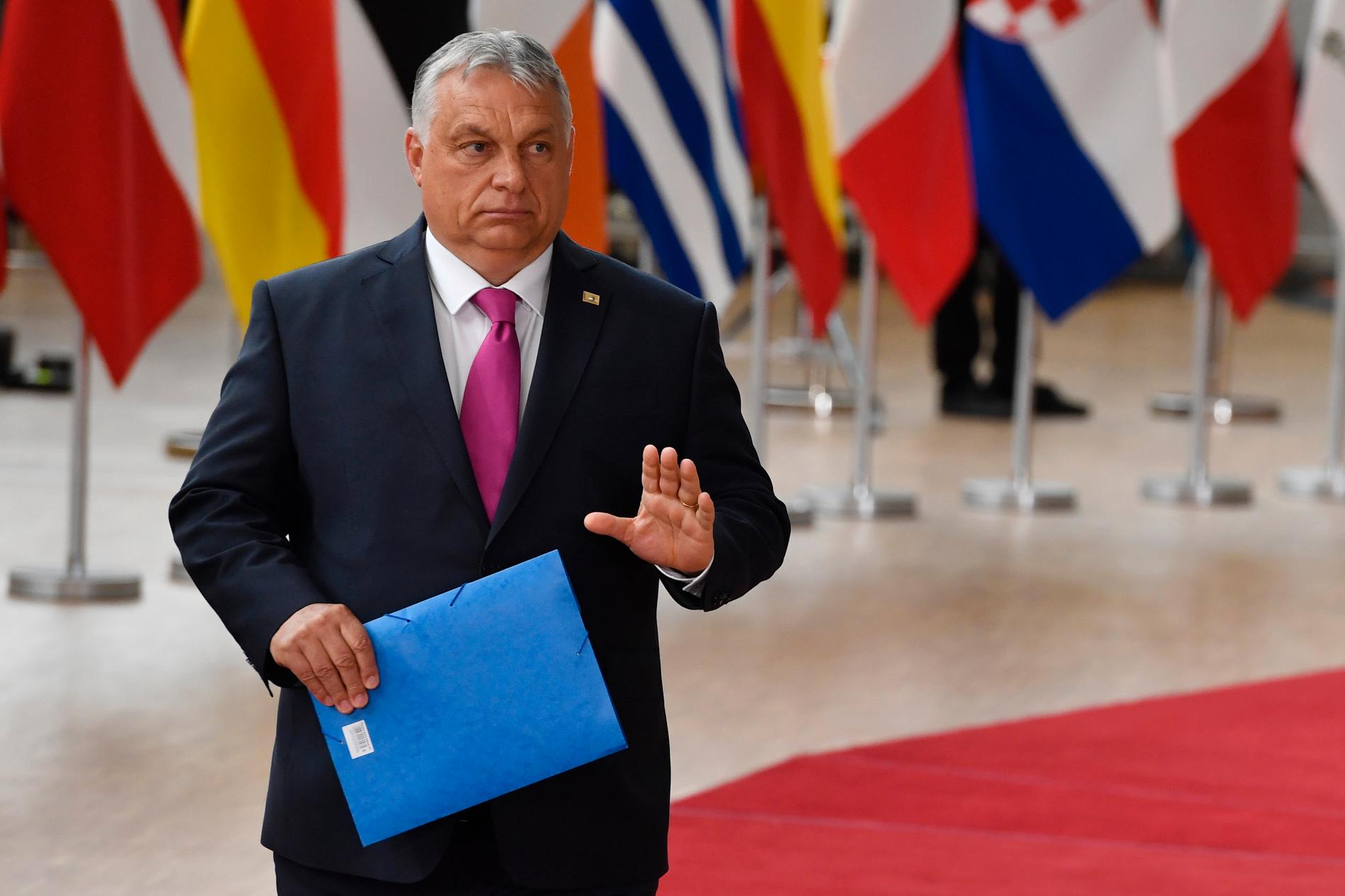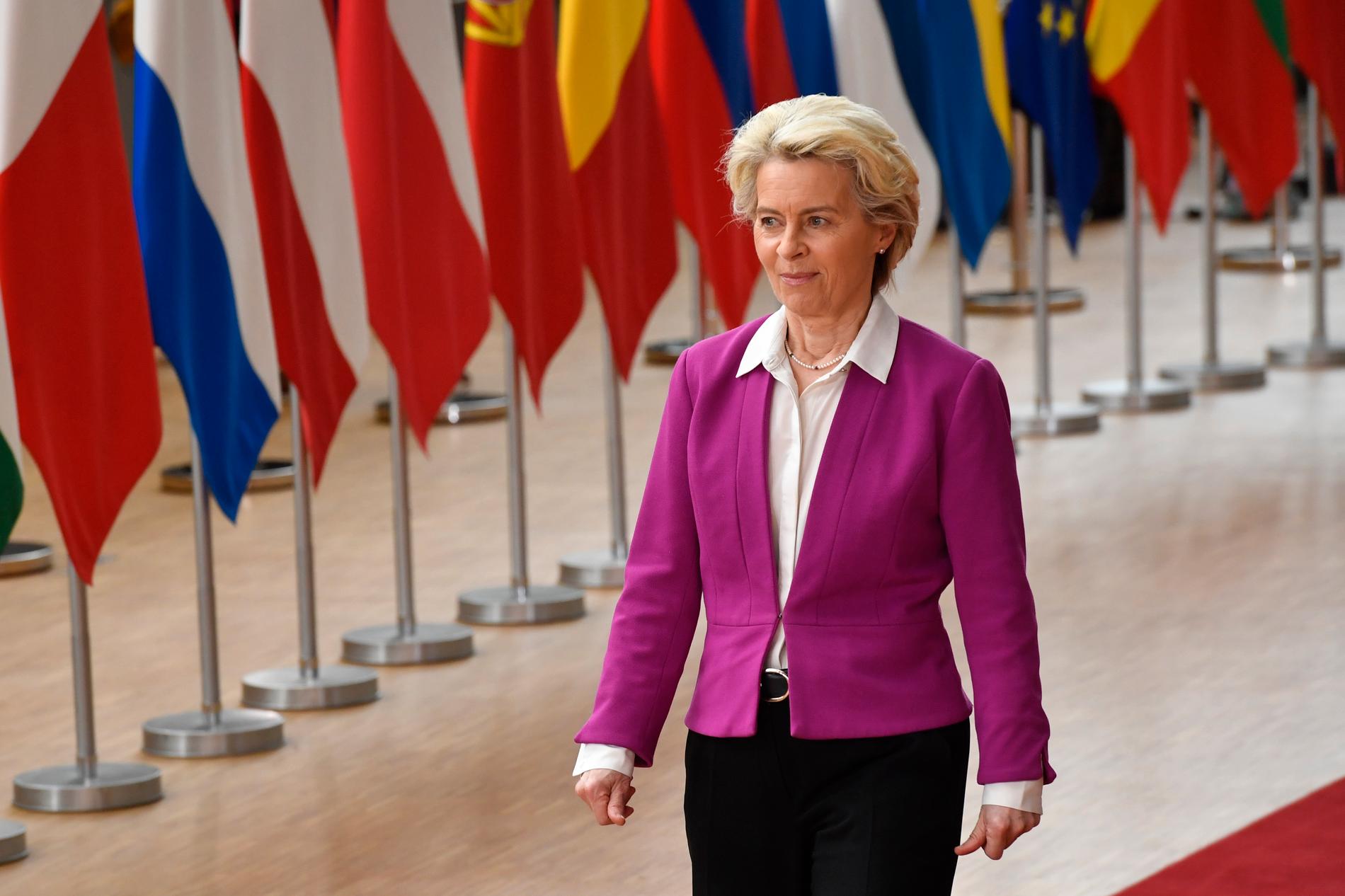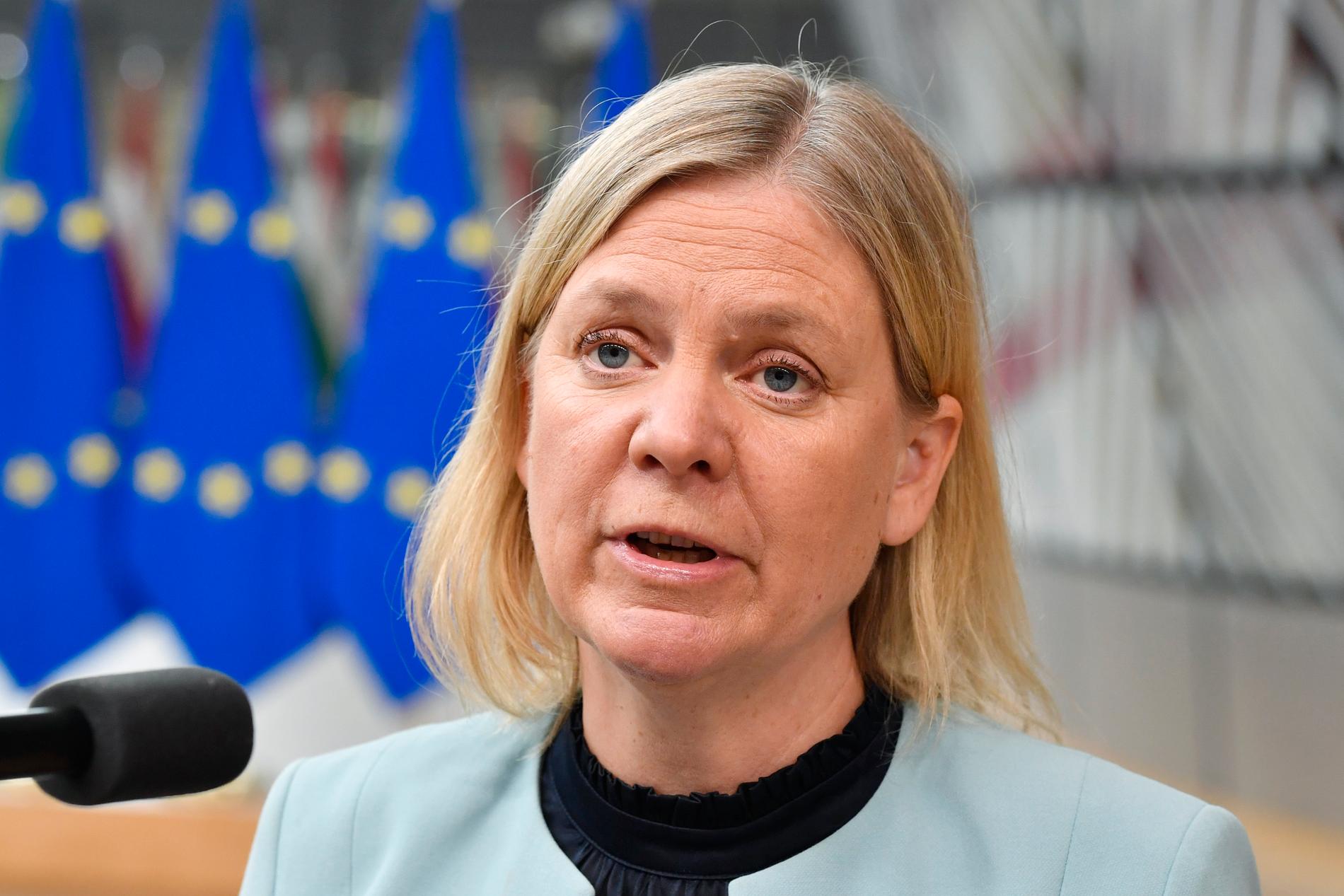Wolfgang Hansson
Oil embargo does not stop the war - despite all the big words
Published: Just recently
This is a commentary text. Analysis and positions are the writer's.
COLUMNISTS
On one level, the EU's oil embargo against Russia is a great success.
But those who believe that Russia is now forced to end the war in Ukraine will be disappointed.
The more the war drags on and the more expensive it becomes for European countries to impose sanctions on Russia, the slower it will be possible to agree.
It took four weeks to agree on an oil embargo. Fast to be the EU in a normal situation. But slowly compared to how quickly the EU acted in the beginning to punish Russia for the war in Ukraine.
The only reason why all 27 member states finally managed to agree is that Hungary, Slovakia and the Czech Republic have been granted an exemption for the oil they import via pipeline from Russia. No end date has been set for when the exemption will expire.
Hungary's Viktor Orbán succeeded in his blackmail.
Other EU countries will stop importing Russian oil that is delivered by ship by the turn of the year.
On paper, this means that Russia loses more than 75 percent of the revenues from the oil it supplies to the EU.
But nothing happens from one day to the next.
It will take over six months before the EU completely stops buying oil from Russia (except for the exceptions).
It also means that it will take time before the Russian treasury is seriously affected.
Hungarian Prime Minister Viktor Orbán arrives at EU summit. Photo: Geert Vanden Wijngaert / AP
Is outside sanctions
The effect of the EU decision was that oil prices rose, which benefits Russia. Since Putin invaded Ukraine, oil prices have risen sharply, at least in the short term, increasing Russian revenues.
EU leaders portray the oil embargo as a "fantastic achievement" and an important mark of the EU's continued unity against Russia's aggression.
In a way, they are right. Without the war, it would have been almost impossible for the EU to agree on such harsh sanctions against Russia. Those introduced after the Kremlin's illegal annexation of the Crimean peninsula were not nearly as far-reaching as they are today.
But anyone who believes that the oil embargo means the nail in the coffin for Russia's warfare risks being very disappointed.
Not only does it take time for the embargo to take full effect. It is also easy to forget that outside the Western world, few countries have imposed sanctions on Russia. Most of the oil that the EU would have bought, Russia will instead sell to others.
India has already sharply increased its purchases of Russian oil. It is not unlikely that China will do the same.
Admittedly, Russia is forced to give a substantial discount, today 30 percent, because buyers know that the Western world does not want to deal with oil. But it still means that multi-billion income continues to roll into the Russian treasury.
EU Commission President Ursula von der Leyen. Photo: Geert Vanden Wijngaert / AP
Magdalena Andersson was also present when the decision was made. Photo: Geert Vanden Wijngaert / AP
Wishful thinking
The day when Putin is forced to stop the war because he has run out of money is very far into the future.
If you listen to EU leaders, you easily get the impression that only the Western world with strong sanctions is turning the thumbscrews really properly, Putin will be forced to give in.
Unfortunately, there is a large portion of wishful thinking in that analysis.
The examples in the world when a great power has been forced to throw in the towel due to economic and political sanctions are depressingly few.
The sanctions make it more expensive and more difficult for Russia to wage its war against Ukraine, but it is only in the very long term that they can force Putin to the negotiating table. The question is whether Ukraine can last that long.
Sanctions work to punish Putin, but there is a superstition that they will force him to change his behavior.
The probable outcome is that in time the Russians will suffer a sharp drop in living standards, while Putin will squander the resources he has to finance the war.
For Europe, however, it is strategically important to get rid of its dependence on Russian oil. This reduces the risk that Russia will be able to use the energy weapon towards the West. The next step is to also phase out the Russian gas, but it seems to take much longer. The gas is more difficult to replace.
Costly
At best, the war could lead to Europe's climate change accelerating. The problem is to replace normally reliable energy sources such as oil and gas with weather-dependent fossil-free sources such as solar and wind.
The EU now also finds itself in a situation where, in order to get rid of its dependence on Russia, it is forced to make large investments in fossil energy, for example by building terminals for importing liquefied natural gas from other countries, while at the same time having to invest heavily in renewable energy to meet climate goals.
It will be expensive for Europe's taxpayers and consumers.
The question, of course, is whether we will get to a point where sanctions in the West hit us harder than they hit Russia.




Inga kommentarer:
Skicka en kommentar